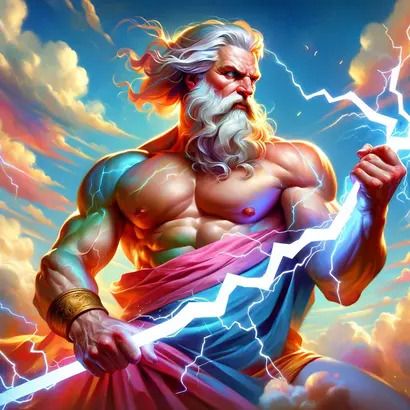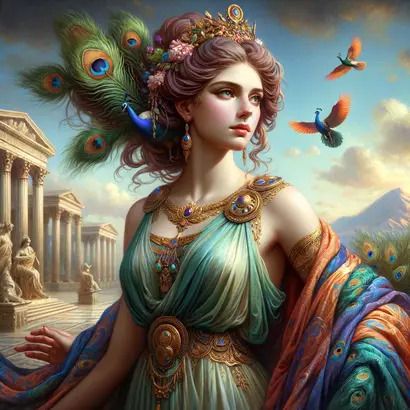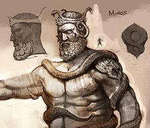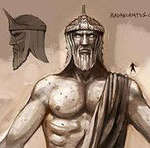
Europa
Europa was initially a Cretan moon goddess, who was incorporated into the Greek mythology as a virgin Phoenician princess. She was the daughter of the King Agenor of Sidon and Europe was named after her.
She had an affair with Zeus, which Hera never learned about and therefore, never tried to pursue Europa to punish her. One night, Europa dreamed of two continents, which had taken the forms of women, arguing over her. Asia maintained that since Europa had been born in Asia, she belonged to her. The other continent, which was nameless, said that her birth was not important and that Zeus would give Europa to her. Disturbed by the dream, Europa woke up in the early hours and did not go back to sleep. She summoned her companions, who were all daughters of nobility and of her age. It was a beautiful day and they went off gathering flowers by the sea. Zeus noticed this charming group, particularly Europa, who was the prettiest of the maidens. According to some sources, Eros induced him into action with one of his arrows, although Zeus never really needed much persuasion. In any case, Zeus appeared to the group in the form of a white bull, one that was more beautiful than any other; a bull that smelled of flowers and lowed beautifully; a bull so obviously gentle that all the maidens rushed to stroke and pet it. The bull laid down in front of Europa and she slid onto its back. Instantly, the bull charged off, plunging into the sea, and began to swim rapidly from the shore. Europa saw that a procession had joined them, Nereids riding dolphins, Triton blowing his horn, even Poseidon. From this, she realized that the bull must be a god and she pleaded to pity her. Zeus spoke to her and explained his love. He took her to Crete, where he had been raised, and promised her that she would bear him many famous sons. Her sons included Minos and Rhadamanthus.
See Also: Zeus, Hera, Minos, Rhadamanthus
Europa Q&A
Europa Associations
Link/Cite Europa Page
Written by: The Editors of GreekMythology.com. GreekMythology.com editors write, review and revise subject areas in which they have extensive knowledge based on their working experience or advanced studies.
For MLA style citation use: GreekMythology.com, The Editors of Website. "Europa". GreekMythology.com Website, 31 Jan. 2015, https://www.greekmythology.com/Myths/The_Myths/Zeus's_Lovers/Europa/europa.html. Accessed 26 April 2024.




